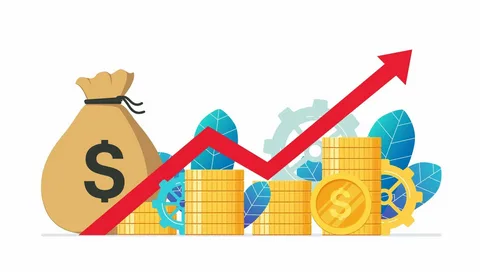MMOs are more than games; their economies work like real life. In these virtual worlds, many players trade, compete, and play together. They can craft items and guess prices just like in the real-world games at the Safe Casino login.
Table of Contents
The Birth of a Digital Currency
Every MMO starts with a blank slate. Developers set base prices, drop rates, and crafting costs. Players, though, quickly take control. They discover ways to earn gold faster, farm rare items, and manipulate trade systems.
Over time, experienced players get most of the money. Like in real life, wealth gathers in a few hands. Too many coins chasing a few items causes prices to rise. That basic sword can suddenly cost three times more, making it hard for new players to keep up.
What was once a balanced system becomes a mirror of the global economy, complete with inequality and speculation.
Inflation by Design
Inflation doesn’t always happen by accident. Sometimes, developers cause it intentionally. Events that reward large sums of in-game currency, like seasonal quests or holiday bonuses, act as stimulus packages.
The more gold players earn, the more they spend, raising prices across the board. It’s digital quantitative easing. Economists watching these games note that developer decisions echo central bank policies. Both control money flow, interest rates, and liquidity, except one happens on servers instead of stock exchanges.
The Farmer Problem
In many games, some players, or even automated bots, grind endlessly to gather resources. These “farmers” can flood the in-game economy with materials or gold, causing prices to drop. It’s like overproduction in real-world markets.
How Developers Manage
- Banning accounts that exploit the system.
- Adding currency sinks, like repair costs or auction fees.
- Introducing luxury items or mounts that require spending excess money.
These actions work like taxes or deflation in real economies to control inflation. The result is a game world that stays balanced and dynamic, requiring constant adjustments to maintain fairness.
Trading Psychology in the Virtual Market
Why do people hoard virtual goods? The same reasons they hoard real ones: fear, speculation, and greed. When rumors spread that an update will make certain materials rarer, players rush to buy. Prices skyrocket overnight.
This herd behavior mimics real financial markets. Emotional reactions, not rational thinking, often drive value. Players create mini-stock markets without realizing it, following patterns that behavioral economists study in real life. The virtual becomes psychological training for the real.
The Rich Get Richer, Even Online
Wealth inequality isn’t just in real life; it appears in online games, too. Experienced players with rare items and large inventories often control markets. They can influence prices, dominate trades, or corner resources.
Here’s how it plays out:
- Veteran players hold rare items that new players can’t afford.
- They can manipulate prices or monopolize resources.
- New players struggle to get basic gear, similar to first-time buyers in real housing markets.
- Developers try to balance things with resets, item caps, or patches.
- Despite these efforts, ambition and competition often tip the scales.
Even in digital worlds, economic hierarchies emerge naturally.
Currency Sinks and Economic Control
To stop runaway inflation, MMOs introduce what players call “gold sinks.” These are mechanisms that remove currency from circulation, expensive mounts, repair fees, or decorative housing. It’s economic design at its most elegant. By offering irresistible luxury goods, developers trick players into voluntary spending that stabilizes the economy.
The Lessons from EVE Online
No game showcases economic realism like EVE Online. Its universe features player-run corporations, trade hubs, and even intergalactic wars funded by market profits. The in-game currency, ISK, has measurable value in real-world terms due to its link with paid subscription time.
When major alliances destroy fleets worth billions of ISK, players actually feel the sting. It’s as if a stock market crash rippled through space. Economists have studied EVE for years, using it to model inflation, market bubbles, and conflict economics. Its lesson is simple: even in games, people behave like investors, not adventurers.
When Virtual Becomes Real
For some, in-game wealth becomes real money. Through gray markets and trading platforms, virtual items can sell for thousands of dollars. This crossover turns virtual inflation into real financial risk.
Developers try to block it, but the human urge to assign value doesn’t stop at the screen. When people spend months earning digital currency, they treat it as real labor and expect real returns. The digital economy stops being make-believe and becomes a shadow of global capitalism.
